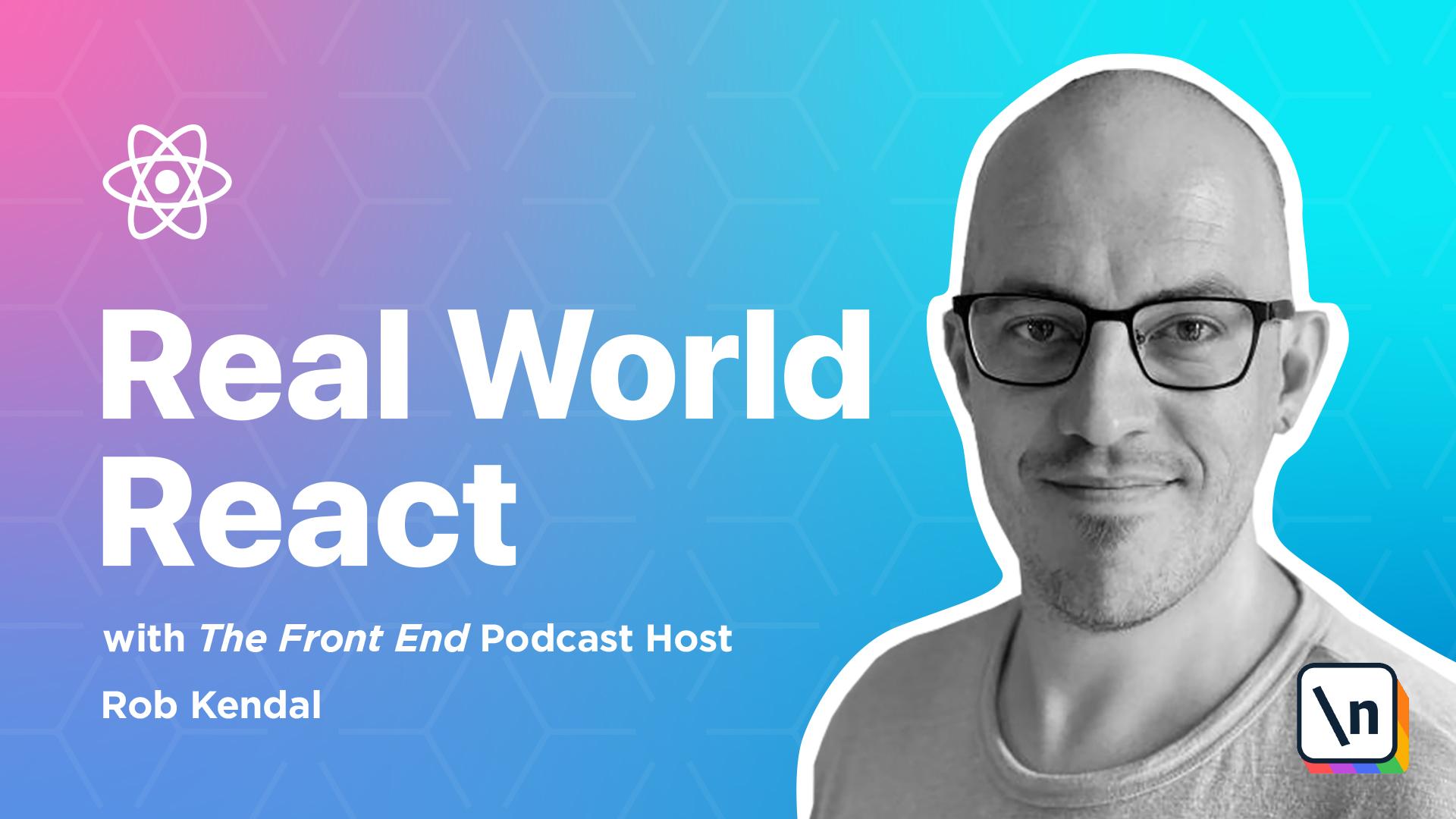About Rob Kendal, Author of Beginner's Guide to Real World React
You'll learn a little bit about Rob Kendal, his development background, and the motivations for producing this course on React.
This lesson preview is part of the Beginner's Guide to Real World React course and can be unlocked immediately with a \newline Pro subscription or a single-time purchase. Already have access to this course? Log in here.
Get unlimited access to Beginner's Guide to Real World React, plus 90+ \newline books, guides and courses with the \newline Pro subscription.

[00:00 - 00:39] I'm Rob Kendall, a front end engineer, podcast host and coding mentor. I started life as a full stack developer but I've been largely focused on front end development throughout my career, which spans about 15 years or so. I've been using React for quite a while now and love its modular approach, simple declarative nature and how quickly it enables you to produce great looking functional new eyes in no time at all. It really is one of my favourite frameworks to use. That said, as much as I love it, I see a lot of developers who are new to React struggling with the same concepts and hitting their heads against the same issues as they try to adopt it. Issues like "how do we navigate around our application?" "What is Redux?" "I just don't get it." "How do we move data between parent and child components and back again?"
[00:40 - 01:59] "What about APIs?" "How do we talk to those?" And many more missing puzzle pieces that I just don't think a lot of resources take the time to cover and help join the dots. That's why I wanted to pull all that JavaScript and React knowledge out of my head and into this course to help those new to React, just let my students to overcome the common pitfalls. And I would like to thank my beautiful supportive wife and my beautiful daughter for all their help, support and patience, even if it's just letting me go to my recording room to do these lessons, not to mention they're putting up with my many grumbles and frustrations when things don't work out as they should. I'd also like to thank Nate and Melissa as well as the whole team at Newline for giving me the opportunity to share my knowledge with a wider audience and produce this course. Finally, I'd like to thank all my students and the wonderful tech community on Twitter from whom I've learnt so much. They teach me new things every day and I wouldn't be without them.
[02:00 - 01:59] Thank you.